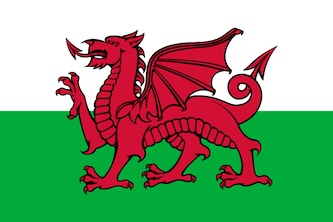A train station in London called Liverpool Street is now the place where the most people come and go in the whole of Britain. It got busier than another station called Waterloo because a new train line called the Elizabeth line opened. From April last year to March this year, 80.4 million people used Liverpool Street station. This is a lot more than before because of the new train line.
In other big cities in Britain, there are also busy train stations. The busiest ones are in Birmingham, Leeds, and Manchester. In Scotland, the busiest station is in Glasgow, and in Wales, it’s in Cardiff. The new train line in London has made traveling much better, but some people say it could be even better, especially when it shares tracks with other trains.
The information shows that people like to take the train when the stations and tracks are good. Putting money into making trains and stations better means more people will use them. The man who looks at how the trains are doing said that Waterloo used to be the busiest for many years. But now, because of the new Elizabeth line, more people are using Liverpool Street station.
Original news source: Liverpool Street becomes Britain’s busiest station (BBC)
🎧 Listen:
Slow
Normal
Fast
📖 Vocabulary:
| 1 | Liverpool | A city in England where a very busy train place is located |
| 2 | Britain | The country that includes England, Scotland, Wales, and Northern Ireland |
| 3 | Waterloo | Another train place in London that used to have the most people |
| 4 | Elizabeth | The name of a new train line that helped a station become very busy |
| 5 | Glasgow | A city in Scotland with a very busy train place |
| 6 | Cardiff | A city in Wales where a lot of people take the train |
| 7 | traveling | Moving from one place to another, often for fun or work |
| 8 | tracks | The metal roads that trains ride on |
| 9 | stations | Places where trains stop to pick up and drop off people |
| 10 | investing | Putting money into something to make it better or more successful |
| 11 | busiest | Having the most people coming and going |
| 12 | monitoring | Watching and checking how something is doing over time |
Group or Classroom Activities
Warm-up Activities:
– News Summary
Instructions: Divide the class into pairs or small groups. Give each group a few minutes to read the article silently. Then, ask them to write a summary of the article in their own words. Afterward, have each group share their summary with the class.
– Word Association
Instructions: Write the word “train” on the board. Ask the students to brainstorm as many words as they can that are associated with trains. Give them a time limit (e.g. 2 minutes). After the time is up, have each student or group share their list of words. Discuss the different associations and meanings.
– Sketch It
Instructions: Divide the class into pairs. Give each pair a blank sheet of paper. One student in each pair will describe a scene or image related to the article, while the other student will try to draw it based on the description. After a few minutes, have the pairs switch roles. Finally, have each pair share their drawings with the class and explain what they were trying to depict.
– Pros and Cons
Instructions: Divide the class into two groups. Assign one group the task of listing the pros (advantages) of the new train line, and the other group the task of listing the cons (disadvantages). Give the groups a few minutes to brainstorm their lists. Then, have each group share their points with the class. Encourage discussion and debate.
– Future Predictions
Instructions: Ask the students to imagine what train stations will be like in the future. Will they be bigger? Will they have new technology? Will there be more train lines? Have the students work individually or in pairs to write down their predictions. Then, ask a few students to share their predictions with the class. Encourage creativity and imagination.
🤔 Comprehension Questions:
1. What is the name of the train station in London where the most people come and go?
2. Why did Liverpool Street station become busier than Waterloo station?
3. How many people used Liverpool Street station from April last year to March this year?
4. Which cities in Britain have other busy train stations?
5. Which city in Scotland has the busiest train station?
6. Which city in Wales has the busiest train station?
7. Why do more people use the train when the stations and tracks are good?
Go to answers ⇩
🎧✍️ Listen and Fill in the Gaps:
A train station in London called Liverpool Street is now the place where the (1)______ people (2)______ and go in the whole of Britain. It got busier than another station called Waterloo because a new train line called the (3)______ line opened. From April last year to March this year, 80.4 million people used Liverpool Street station. This is a lot more than before because of the new (4)______ line.
In other big cities in Britain, there are also (5)______ train stations. The (6)______ ones are in Birmingham, Leeds, and Manchester. In Scotland, the busiest station is in Glasgow, and in Wales, it’s in Cardiff. The new train (7)______ in (8)______ has made traveling much better, but some people say it could be even better, especially when it (9)______ tracks with other trains.
The information shows that people like to take the train when the stations and tracks are good. Putting money into making trains and stations better means (10)______ people will use them. The man who looks at how the trains are doing (11)______ that (12)______ used to be the busiest for many years. But now, because of the new Elizabeth line, more people are using Liverpool Street station.
Go to answers ⇩
💬 Discussion Questions:
Students can ask a partner these questions, or discuss them as a group.
1. What is the name of the busiest train station in Britain?
2. How do you think the new train line in London made traveling better?
3. Do you like taking the train? Why or why not?
4. How would you feel if you had to share tracks with other trains?
5. What do you think happens when more money is put into making trains and stations better?
6. Have you ever been to a busy train station? How was it?
7. What do you think about the fact that Liverpool Street station is now busier than Waterloo?
8. How do you think the man who looks at how the trains are doing feels about the new Elizabeth line?
9. What is the busiest train station in Scotland? How about in Wales?
10. Do you think it’s important to have good train stations and tracks? Why or why not?
11. How do you think the new train line in London has affected the number of people using Liverpool Street station?
12. Have you ever taken a train? Where did you go and how was your experience?
Individual Activities
📖💭 Vocabulary Meanings:
Match each word to its meaning.
Words:
1. Liverpool
2. Britain
3. Waterloo
4. Elizabeth
5. Glasgow
6. Cardiff
7. traveling
8. tracks
9. stations
10. investing
11. busiest
12. monitoring
Meanings:
(A) The country that includes England, Scotland, Wales, and Northern Ireland
(B) Having the most people coming and going
(C) Moving from one place to another, often for fun or work
(D) Watching and checking how something is doing over time
(E) The metal roads that trains ride on
(F) The name of a new train line that helped a station become very busy
(G) Putting money into something to make it better or more successful
(H) A city in Wales where a lot of people take the train
(I) Another train place in London that used to have the most people
(J) Places where trains stop to pick up and drop off people
(K) A city in England where a very busy train place is located
(L) A city in Scotland with a very busy train place
Go to answers ⇩
🔡 Multiple Choice Questions:
1. Which train station in London is now the busiest in the whole of Britain?
(a) Waterloo
(b) Birmingham
(c) Glasgow
(d) Liverpool Street
2. Why did Liverpool Street station become busier than Waterloo?
(a) A new train line called the Elizabeth line opened
(b) More people started using trains in general
(c) Liverpool Street station is bigger than Waterloo
(d) Waterloo station closed down
3. How many people used Liverpool Street station from April last year to March this year?
(a) 50 million
(b) 100 million
(c) 80.4 million
(d) 20 million
4. Which cities in Britain have other busy train stations?
(a) Liverpool, Edinburgh, and Cardiff
(b) London, Glasgow, and Birmingham
(c) Manchester, Leeds, and Edinburgh
(d) Birmingham, Leeds, and Manchester
5. Which city in Scotland has the busiest train station?
(a) Edinburgh
(b) Glasgow
(c) Birmingham
(d) Manchester
6. Which city in Wales has the busiest train station?
(a) Cardiff
(b) Liverpool
(c) Leeds
(d) Glasgow
7. How has the new train line in London made traveling better?
(a) It has reduced the number of people using trains
(b) It has made the stations and tracks better
(c) It has made the trains faster
(d) It has made the trains cheaper
8. What does the information in the article show about people and train travel?
(a) People prefer buses over trains
(b) People only use trains when they have no other choice
(c) People like to take the train when the stations and tracks are good
(d) People don’t like to travel by train
Go to answers ⇩
🕵️ True or False Questions:
1. Investing money to improve trains and stations discourages more people to use them.
2. Liverpool Street train station in London is now the busiest in all of Britain.
3. The popularity of train travel is influenced by the quality of stations and tracks.
4. Waterloo has always been the busiest train station for many years, but now Liverpool Street has taken that title because of the Elizabeth line.
5. The increase in people using Liverpool Street station is not because of a new train line called the Elizabeth line.
6. From April last year to March this year, 80.4 million people did not use Liverpool Street station.
7. Other busy train stations in Britain are located in Birmingham, Leeds, Manchester, Glasgow, and Cardiff.
8. The new train line in London has improved travel, but some people think it could be even better when it shares tracks with other trains.
Go to answers ⇩
📝 Write a Summary:
Write a summary of this news article in two sentences.
Check your writing now with the best free AI for English writing!
Writing Questions:
Answer the following questions. Write as much as you can for each answer.
Check your answers with our free English writing assistant!
1. Where is the busiest train station in Britain?
2. Why did Liverpool Street become busier than Waterloo?
3. What is the name of the new train line in London?
4. Which cities in Britain have busy train stations?
5. Why is it important to invest money in improving trains and stations?
✅ Answers
🤔✅ Comprehension Question Answers:
1. What is the name of the train station in London where the most people come and go?
The train station in London where the most people come and go is called Liverpool Street.
2. Why did Liverpool Street station become busier than Waterloo station?
Liverpool Street station became busier than Waterloo station because a new train line called the Elizabeth line opened.
3. How many people used Liverpool Street station from April last year to March this year?
From April last year to March this year, 80.4 million people used Liverpool Street station.
4. Which cities in Britain have other busy train stations?
Other cities in Britain that have busy train stations are Birmingham, Leeds, and Manchester.
5. Which city in Scotland has the busiest train station?
The city in Scotland with the busiest train station is Glasgow.
6. Which city in Wales has the busiest train station?
The city in Wales with the busiest train station is Cardiff.
7. Why do more people use the train when the stations and tracks are good?
More people use the train when the stations and tracks are good because it makes traveling easier and more convenient.
Go back to questions ⇧
🎧✍️✅ Listen and Fill in the Gaps Answers:
(1) most
(2) come
(3) Elizabeth
(4) train
(5) busy
(6) busiest
(7) line
(8) London
(9) shares
(10) more
(11) said
(12) Waterloo
Go back to questions ⇧
📖💭✅ Vocabulary Meanings Answers:
1. Liverpool
Answer: (K) A city in England where a very busy train place is located
2. Britain
Answer: (A) The country that includes England, Scotland, Wales, and Northern Ireland
3. Waterloo
Answer: (I) Another train place in London that used to have the most people
4. Elizabeth
Answer: (F) The name of a new train line that helped a station become very busy
5. Glasgow
Answer: (L) A city in Scotland with a very busy train place
6. Cardiff
Answer: (H) A city in Wales where a lot of people take the train
7. traveling
Answer: (C) Moving from one place to another, often for fun or work
8. tracks
Answer: (E) The metal roads that trains ride on
9. stations
Answer: (J) Places where trains stop to pick up and drop off people
10. investing
Answer: (G) Putting money into something to make it better or more successful
11. busiest
Answer: (B) Having the most people coming and going
12. monitoring
Answer: (D) Watching and checking how something is doing over time
Go back to questions ⇧
🔡✅ Multiple Choice Answers:
1. Which train station in London is now the busiest in the whole of Britain?
Answer: (d) Liverpool Street
2. Why did Liverpool Street station become busier than Waterloo?
Answer: (a) A new train line called the Elizabeth line opened
3. How many people used Liverpool Street station from April last year to March this year?
Answer: (c) 80.4 million
4. Which cities in Britain have other busy train stations?
Answer: (d) Birmingham, Leeds, and Manchester
5. Which city in Scotland has the busiest train station?
Answer: (b) Glasgow
6. Which city in Wales has the busiest train station?
Answer: (a) Cardiff
7. How has the new train line in London made traveling better?
Answer: (b) It has made the stations and tracks better
8. What does the information in the article show about people and train travel?
Answer: (c) People like to take the train when the stations and tracks are good
Go back to questions ⇧
🕵️✅ True or False Answers:
1. Investing money to improve trains and stations discourages more people to use them. (Answer: False)
2. Liverpool Street train station in London is now the busiest in all of Britain. (Answer: True)
3. The popularity of train travel is influenced by the quality of stations and tracks. (Answer: True)
4. Waterloo has always been the busiest train station for many years, but now Liverpool Street has taken that title because of the Elizabeth line. (Answer: False)
5. The increase in people using Liverpool Street station is not because of a new train line called the Elizabeth line. (Answer: False)
6. From April last year to March this year, 80.4 million people did not use Liverpool Street station. (Answer: False)
7. Other busy train stations in Britain are located in Birmingham, Leeds, Manchester, Glasgow, and Cardiff. (Answer: True)
8. The new train line in London has improved travel, but some people think it could be even better when it shares tracks with other trains. (Answer: True)
Go back to questions ⇧















